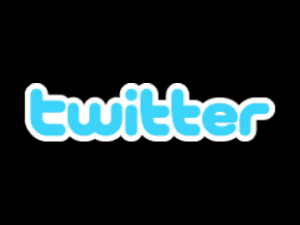 THUNDER BAY – TECH TALK – Among the many surprising applications for social media besides its original core mission of encouraging idleness, one of the most interesting and useful has been for public health, where sites like Twitter and Facebook can help track outbreaks of disease, gather data, and disseminate information about preventive measures and treatment to the public.
THUNDER BAY – TECH TALK – Among the many surprising applications for social media besides its original core mission of encouraging idleness, one of the most interesting and useful has been for public health, where sites like Twitter and Facebook can help track outbreaks of disease, gather data, and disseminate information about preventive measures and treatment to the public.
In fact, social media may be even better at tracking diseases than the established public health authorities, judging by an article documenting the use of Twitter to track a cholera outbreak in Haiti after the devastating earthquake in January 2010. The article, “Social and News Media Enable Estimation of Epidemiological Patterns Early in the 2010 Haitian Cholera Outbreak,” was published in The American Journal of Tropical Medicine and Hygiene by Rumi Chunara and John Brownstein of Harvard Medical School and Jason Andrews of Massachusetts General Hospital.
According to the authors, “During infectious disease outbreaks, data collected through health institutions and official reporting structures may not be available for weeks, hindering early epidemiologic assessment. By contrast, data from informal media are typically available in near real-time and could provide earlier estimates of epidemic dynamics.”
And indeed, comparing 188,819 tweets containing or tagged with the word cholera against government cholera reports in the first 100 days of the 2010 Haitian cholera outbreak, the authors found that “Trends in volume of informal sources significantly correlated in time with official case data and was available up to 2 weeks earlier.” In future, this kind of data could allow public health agencies to respond more quickly to incipient outbreaks, by expediting emergency deliveries of vaccines or antibiotics.
Crucially, many Haitians own mobile phones which enabled them to post to online social media, even when the country’s other infrastructure (including landline telephone service) had been ruined by the earthquake.
In the past I’ve written about a number of public health applications for social media. Last year an article published in the New England Journal of Medicine by Dr. Raina M. Merchant, an emergency physician and assistant professor at the University of Pennsylvania’s Pearlman School of Medicine, described how social media disseminated public health-related information in situations as diverse as the H1N1 flu epidemic, the Deepwater Horizon oil spill, Haiti’s 2010 earthquake, and the 2011 Egyptian uprising. For example, during the 2009 H1N1 flu epidemic, the U.S. Department of Health and Human Services hosted a “Mommycast” on YouTube (which could also be downloaded as an iTunes video podcast) which reached millions of viewers with information about vaccinations.
Also last year, a presentation to the Centers for Disease Control in Atlanta by Dr. Caitlin Reed of the LA County Department of Public Health examined the role of social media in tracking an outbreak of Legionnaire’s Disease which was traced back to the Playboy Mansion. Social media played a role almost from the beginning of the outbreak, with a “cluster of respiratory illness reported by attendees via social media.” Social media was also central to the follow-up, allowing the LACDPH to send an online survey to all 715 conference attendees.
Eric Sass
(c) 2011 MediaPost Communications Twitter – Faster than a speeding agency in tracking Cholera in Haiti by Erik Sass originally appeared in Online Media Daily on January 13, 2012.
[ad#Google Adsense 350×250 sidebaradd]
